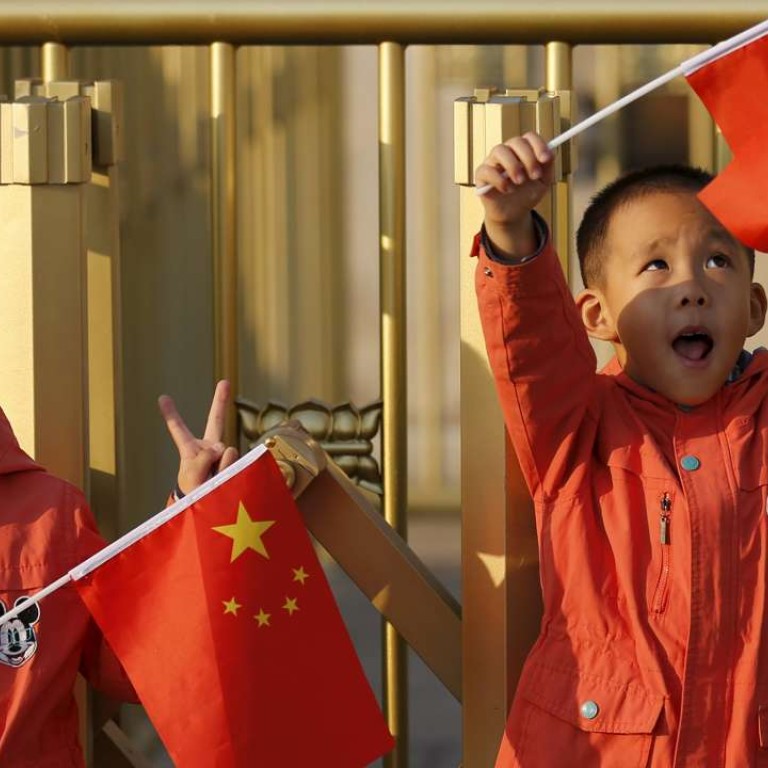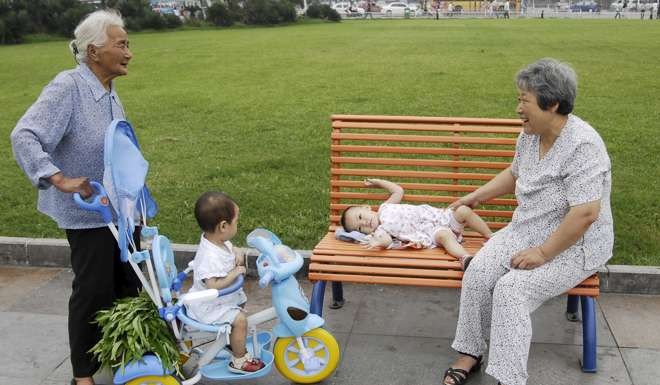
Once a one-child-policy wonder, which Chinese city is now urging party members to have second baby?
Local government in city of Yichang, Hubei, calls on young comrades to ‘work on themselves’ to have two children
“Young comrades should start from themselves, while elderly comrades should educate and supervise their own children,” the health and family planning commission of Yichang in central Hubei province, said in a public letter on its website.
The letter was addressed to all Communist Party and Communist Youth League members in the city who work for the government or public institutions such as schools and hospitals. The city has a population of some 4 million residents.

Fertile young couples were encouraged to “work on themselves” to have a second baby, and those already too old for another child should “teach and urge” their children to have two offspring, according to the letter.
It also encouraged them to promote the “benefits of having two children” and to “remind people of the risks of having only one child”.
The Yichang government’s move comes almost four decades after late leader Deng Xiaoping first called on China’s party member couples to have only one child.
The one-child policy was implemented across the nation around the late 1970s, and in 2010, Yichang was lauded as a national example for its strict measures in keeping new births in check. The city’s fertility rate over the past decade was less than one birth per woman – close to that of Hong Kong, which has the world’s lowest fertility rate.
“If such phenomenon continues, this would bring extremely high risk and harm to the economic and social development as well as happiness of the families in the city,” the letter stated. “A direct consequence is a risky one-child family, ageing society, labour shortage and lagging urbanisation.”
China’s one-child rule was lifted altogether at the start of this year to allow all couples to have two children, after an easing of the policy in late 2013 achieved only limited results.
The 2013 relaxation of the rule permitted more families to have two children when the parents met certain conditions, but young Chinese couples still preferred having just one child. New births in 2015 actually fell by 320,000 from 2014, according to official statistics.
The fundamental shift in the family planning policy – which has been called the most extreme demographic experiment in human history – comes as China seeks to cope with its shrinking labour supply and rapidly greying population.
The problem is especially bad in the country’s rust-belt zones and inland rural areas such as Yichang, which have suffered an exodus of migrants to richer coastal areas.
With the lifting of the one-child rule this year, many local authorities who had previously been unfriendly to new births – forcing abortions or imposing hefty fines for unplanned pregnancies and births – are now encouraging couples to have a second baby.
The Yichang government’s public letter to party member couples to meet the new birth quota of two is a small step in that direction. Other policies to encourage more babies include free medical services for mothers, longer maternity leave and more public resources dedicated to building child-care centres and schools.

